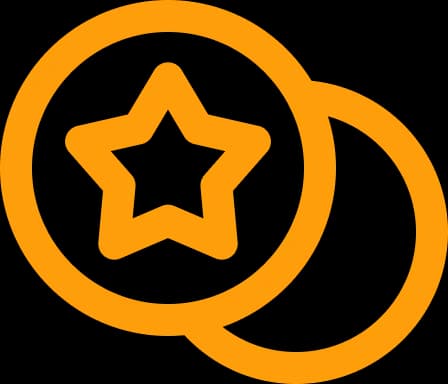Holiday Special | Enjoy 20% OFF – Celebrate the Season with Big Savings!Holiday Special | 20% OFF!

A-CSM Certification Training Certification Process
Enrolled
A Comprehensive Guide to the A-CSM Certification Training Process The A-CSM certification, offered by Scrum Alliance, is an advanced-level credential aimed at professionals seeking to deepen their understanding of Scrum and enhance their leadership capabilities. This certification focuses on refining the skills necessary for effective Scrum Masters, including facilitation, coaching, and team dynamics. Eligibility Requirements To qualify for the A-CSM certification, candidates must: Hold a valid CSM® certification: A current Certified ScrumMaster® (CSM®) certification from Scrum Alliance is mandatory. Complete a 16-hour A-CSM course: Attend an approved A-CSM course, which can be delivered in-person, live online, or through a hybrid model. Validate Scrum Master experience: Demonstrate at least 12 months of work experience in the role of a Scrum Master within the past five years. Training Course Overview The A-CSM training course typically spans two days and covers advanced topics such as: Facilitation techniques for effective Scrum ceremonies.Login Coaching strategies to support team development. Understanding and applying scaling frameworks. Managing organizational change and impediments. Enhancing servant leadership skills. Certification Process After completing the training and fulfilling the eligibility criteria, candidates can: Submit work experience: Log at least 12 months of Scrum Master experience in the Scrum Alliance profile Accept the A-CSM License Agreement: Agree to the terms and conditions set by Scrum Alliance. Complete educator-designed components: Fulfill any additional requirements set by the course educator, such as pre- or post-course assignments. Receive certification: Upon verification, the A-CSM certification is awarded, valid for two years. Certification Renewal To maintain the A-CSM certification: Earn 30 Scrum Education Units (SEUs): Complete relevant educational activities within the two-year period. Pay the renewal fee: A fee is required to extend the certification for another two year. Conclusion The A-CSM certification is a valuable credential for Scrum Masters aiming to enhance their skills and advance their careers. By meeting the eligibility requirements, completing the training, and adhering to the certification process, professionals can gain the expertise needed to lead successful Agile transformations. FAQ 1. What is the first step to earn the A-CSM certification? The initial step is to hold a valid Certified ScrumMaster® (CSM®) certification from Scrum Alliance. 2. How long is the A-CSM training course? The A-CSM training course typically lasts for two days, totaling 16 hours of instruction. 3. Can the A-CSM course be taken online? Yes, the A-CSM course is available in various formats, including live online sessions. 4. Is there an exam to obtain the A-CSM certification? No, there is no exam for the A-CSM certification; completion of the training and fulfillment of other requirements are sufficient. 5. How do I validate my Scrum Master experience? Scrum Master experience can be validated by logging the work history in your Scrum Alliance profile.
A-CSM Certification Training Overview
Key Features






Who All Can Attend This A-CSM Certification Training?
Professionals who have experience in Scrum and Scrum Master roles can take this course. Below are the few job roles that get benefited from this course, but are not limited to:Prerequisites To Take A-CSM Certification Training
Anyone with an active CSM certification is eligible for the A-CSM training course. But, one must have at least 12 months of work experience specific to the role of Scrum Master to complete the Scrum Alliance profile in order to receive their A-CSM certificate.

- Upskill or reskill your teams
- Immersive Learning Experiences
- Private cohorts available
- Advanced Learner Analytics
- Skills assessment & benchmarking
- Platform integration capabilities
- Dedicated Success Managers

- Upskill or reskill your teams
- Immersive Learning Experiences
- Private cohorts available
- Advanced Learner Analytics

Play Intro Video
Next Cohort starts in 2 days
Advanced ScrumMaster is the stepping stone to your next level journey in the world of Scrum. If you are a Certified ScrumMaster and have experience in working as a ScrumMaster, then A-CSM certification is the right choice to advance your Scrum career. Getting Advanced CSM certification gives you a distinct edge over your peers and also gain numerous career opportunities in organizations that employ Agile practices.

High Demand for A-CSM Certification Training
Soaring Demand and Accelerated Growth
Advanced certifications, such as the A-CSM, can lead to a median salary increase of up to $16,000 annually compared to those without certification.
The job market for Scrum Masters is expected to grow by 15% over the next decade, underscoring the essential role they play in Agile organizations.
Approximately 66% of organizations currently utilize Scrum, highlighting the widespread adoption of Agile methodologies and the demand for skilled Scrum Masters.
$102k
$120k
$135k
$150k
$175k


Skills Focused
- Agile and Lean Values, Principles, and Worldview
- Empirical Process Control
- Agile Facilitation
- Agile Coaching
- Agile Training
- Self-Organization
- Team Dynamics
- Definition of “Done”
- Value of Development Practices
- Analyze and Resolve Impediments
- Scaling Scrum
- Organizational Change
- Personal Development
- Servant-Leadership
Career Path
Certification Process


